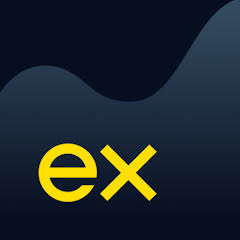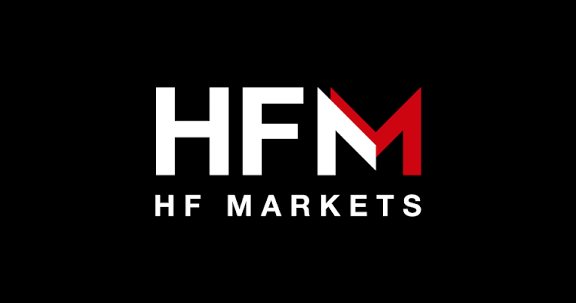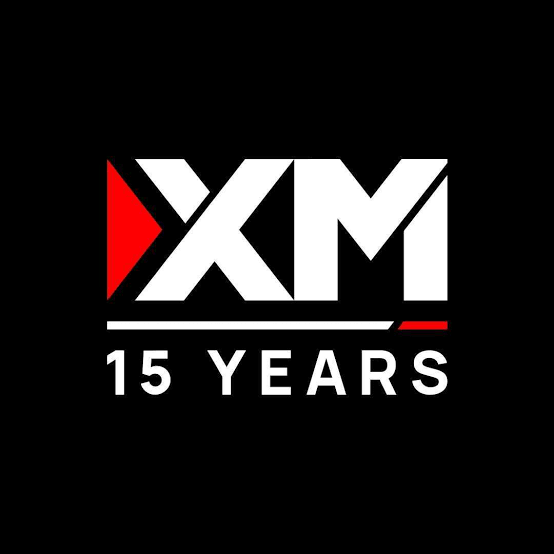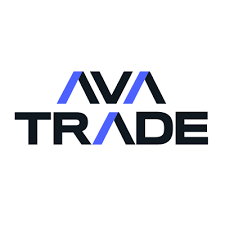Best MT4 Brokers – Complete Educational Guide
This comprehensive educational guide explores the best MetaTrader 4 brokers, platform features, trading tools, and risk management considerations. MetaTrader 4 remains the world's most popular retail trading platform, offering powerful charting, automated trading, and extensive customization options. Always begin with demo accounts to understand platform functionality before considering live trading.
Educational Note: This guide is for educational purposes only. Trading carries significant financial risk, and leveraged products like CFDs can result in losses that exceed your initial deposit. Between 65-80% of retail investors lose money when trading CFDs. Never trade with money you cannot afford to lose.
Recommended Brokers 2025
Educational access and demo-first practice. No investment advice.
Table of Contents
Understanding MetaTrader 4
Broker Selection Criteria
MT4 Broker Comparisons
Advanced MT4 Trading
MetaTrader 4 Platform Overview
MetaTrader 4 (MT4) is the world's most popular retail trading platform, developed by MetaQuotes Software in 2005. Despite the introduction of MT5, MT4 remains the platform of choice for millions of traders worldwide due to its stability, extensive ecosystem, and proven reliability.
MT4 Platform Architecture
MT4 operates on a client-server architecture where the trading platform (client) connects to the broker's trading server. This structure enables real-time price streaming, order execution, and account management while maintaining platform stability.
| Component | Function | Importance |
|---|---|---|
| Client Terminal | User interface for trading and analysis | Primary interaction point for traders |
| Trade Server | Processes orders and manages accounts | Ensures order execution and account security |
| Data Feed | Provides real-time price quotes | Essential for accurate trading decisions |
| Administration Module | Broker backend for account management | Maintains platform integrity and security |
MT4 System Requirements
| Platform | Minimum Requirements | Recommended Specifications |
|---|---|---|
| Windows | Windows XP, 512MB RAM, 50MB disk space | Windows 10, 2GB RAM, 100MB disk space |
| macOS | Via Wine or virtualization | Native Mac version or web platform |
| Linux | Via Wine compatibility layer | Web platform or mobile app |
| Mobile | iOS 9.0+ or Android 4.1+ | Latest iOS/Android for full features |
| Web Platform | Modern web browser | Chrome, Firefox, Safari, Edge |
Platform Compatibility: While MT4 was originally designed for Windows, most brokers now offer web-based and mobile versions that work across all operating systems. The web platform provides nearly all desktop features without requiring software installation.
Key MT4 Features & Tools
MT4's enduring popularity stems from its comprehensive feature set that caters to both beginner and advanced traders. Understanding these features is essential for maximizing your trading efficiency and effectiveness.
Charting Capabilities
| Chart Feature | Description | Trading Application |
|---|---|---|
| 9 Timeframes | From M1 to MN1 (monthly) | Multi-timeframe analysis |
| 3 Chart Types | Bars, Candlesticks, Line | Preferred visualization methods |
| 30 Technical Indicators | Built-in indicators like MA, RSI, MACD | Technical analysis foundation |
| 24 Analytical Objects | Trend lines, Fibonacci, shapes | Manual technical analysis |
| Unlimited Charts | Open multiple chart windows | Monitor multiple instruments |
Trading Operations
One-Click Trading
Execute trades instantly with a single click from the chart or market watch window.
Pending Orders
Set buy limit, sell limit, buy stop, and sell stop orders for automated entry.
Trailing Stops
Automatically adjust stop loss as price moves in your favor to protect profits.
Trade Management
Modify open positions, set take profit and stop loss levels on existing trades.
Analysis Tools
Market Watch
Real-time quotes for all available instruments with quick trade execution capabilities.
Data Window
Detailed price information for any point on the chart including OHLC values.
Navigator
Access to accounts, indicators, Expert Advisors, and scripts in one organized panel.
Terminal Window
Comprehensive view of trade history, account balance, equity, and margin information.
Advantages of Trading with MT4
MT4's dominance in the retail trading space is no accident. The platform offers numerous advantages that continue to make it the preferred choice for traders worldwide, despite newer platforms entering the market.
Key Advantages of MT4
| Advantage | Description | Benefit to Traders |
|---|---|---|
| Proven Stability | Nearly 20 years of refinement and bug fixes | Reliable performance during volatile markets |
| Extensive Ecosystem | Thousands of indicators, EAs, and scripts available | Vast resources for strategy development |
| Customization | Highly customizable interface and workflows | Personalized trading environment |
| Automation Capabilities | MQL4 programming language for EAs | 24/7 automated trading without monitoring |
| Mobile Trading | Full-featured iOS and Android applications | Trading flexibility across devices |
| Broker Compatibility | Widely supported by hundreds of brokers | Easy broker switching without relearning |
MT4 vs MT5: Key Differences
| Feature | MetaTrader 4 | MetaTrader 5 |
|---|---|---|
| Markets | Primarily Forex & CFDs | Forex, Stocks, Futures, Options |
| Order Types | 4 order types | 6 order types + pending orders |
| Timeframes | 9 timeframes | 21 timeframes |
| Technical Indicators | 30 built-in | 38 built-in |
| Programming Language | MQL4 | MQL5 |
| Backtesting | Single-threaded | Multi-threaded, faster |
Platform Choice Consideration: While MT5 offers technical improvements, MT4 remains superior for forex and CFD trading due to its massive ecosystem, proven stability, and wider broker support. MT5 is better suited for traders needing access to exchange-traded instruments like stocks and futures.
Regulation & Safety of MT4 Brokers
Choosing a properly regulated MT4 broker is the most important decision for protecting your trading capital. Regulatory oversight provides critical safeguards, including segregated client funds, dispute resolution mechanisms, and financial compensation schemes.
Key Regulatory Bodies for MT4 Brokers
| Regulator | Region | Key Protections | Leverage Limits |
|---|---|---|---|
| FCA (UK) | United Kingdom | £85,000 compensation, segregated funds | 1:30 (retail) |
| ASIC (Australia) | Australia | Segregated funds, dispute resolution | 1:30 (retail) |
| CySEC (Cyprus) | European Union | €20,000 compensation, MiFID passporting | 1:30 (retail) |
| FSCA (South Africa) | South Africa | Segregated funds, regulatory oversight | 1:400 |
| FSC (British Virgin Islands) | International | Basic regulatory framework | 1:500+ |
Safety Assessment Checklist
MT4 Broker Safety Checklist:
✓ Verify regulatory status on regulator's official website
✓ Confirm segregated client funds policy
✓ Check for negative balance protection
✓ Review company financial reports (if available)
✓ Research broker's industry reputation and history
✓ Verify encryption and security protocols
✓ Check dispute resolution procedures
Regulatory Warning: Be extremely cautious of unregulated or offshore-regulated brokers offering exceptionally high leverage. While higher leverage can increase profit potential, it also significantly increases risk and may indicate lower regulatory standards. Always prioritize safety over leverage when selecting an MT4 broker.
MT4 Broker Trading Costs Comparison
Trading costs significantly impact long-term profitability. When comparing MT4 brokers, consider all cost components including spreads, commissions, swap rates, and hidden fees. The cheapest broker isn't necessarily the best if it compromises on execution quality or reliability.
MT4 Broker Cost Comparison
| Broker | EUR/USD Spread | Commission | Minimum Deposit | Inactivity Fee | Swap Rates |
|---|---|---|---|---|---|
| Deriv | 1.6 pips | $0 | $5 | None | Average |
| HFM | 1.5 pips | $0-$6 | $0 | $5 (after 6 months) | Competitive |
| Exness | 1.1 pips | $0 | $1 | None | Competitive |
| XM | 1.6 pips | $0 | $5 | $5 (after 12 months) | Average |
| AvaTrade | 1.8 pips | $0 | $100 | $50 (after 3 months) | Higher than average |
Understanding Trading Costs
Spreads
The difference between bid and ask prices. Can be fixed or variable. Variable spreads typically tighten during high liquidity periods but widen during news events.
Commissions
Some brokers charge separate commissions per trade, typically with tighter raw spreads. Commission-based pricing often benefits high-volume traders.
Swap Rates
Overnight financing charges for positions held beyond one trading day. Can be positive or negative depending on the instrument and trade direction.
Hidden Fees
Inactivity fees, withdrawal charges, currency conversion fees, and platform fees can significantly impact overall trading costs.
Cost Calculation Example
Example: Comparing Total Trading Costs
Scenario: 20 standard lot trades per month, average hold time 2 days
Broker A: 1.5 pip spread, no commission, $8 swap per lot
Broker B: 0.8 pip spread, $5 commission, $6 swap per lot
Monthly Cost Calculation:
Broker A: (20 × 1.5 × $10) + (20 × 2 × $8) = $300 + $320 = $620
Broker B: (20 × 0.8 × $10) + (20 × $5 × 2) + (20 × 2 × $6) = $160 + $200 + $240 = $600
Despite higher spreads, Broker A is slightly more expensive in this scenario
Deriv MT4 Analysis
Regulation
MFSA (Malta), Labuan FSA (Malaysia), VFSC (Vanuatu)
Minimum Deposit
$5
Leverage
Up to 1:1000 (varies by jurisdiction)
Deriv MT4 Features
- Full MT4 platform with all standard features
- Access to synthetic indices, forex, commodities, cryptocurrencies
- No commission on trades (spread-only pricing)
- Expert Advisors and custom indicators supported
- Mobile MT4 app available for iOS and Android
Instrument Coverage on Deriv MT4
| Asset Class | Examples | Typical Spreads |
|---|---|---|
| Forex | EUR/USD, GBP/USD, USD/JPY | 1.6-2.2 pips |
| Synthetic Indices | Volatility 75, Step Index, Jump 25 | Fixed spreads (varies by index) |
| Commodities | Gold, Silver, Oil | 0.04-0.50 |
| Cryptocurrencies | BTC/USD, ETH/USD, LTC/USD | 85-150 pips |
Pros for MT4 Traders
- Extremely low minimum deposit
- No commission on trades simplifies cost calculation
- Unique synthetic indices for 24/7 trading
- No inactivity fees
- Competitive spreads during normal market conditions
Considerations
- Limited regulatory oversight compared to some competitors
- Spreads can widen significantly during high volatility
- Not available to residents of many countries including USA
- Synthetic products have different risk profiles than traditional markets
Best For:
Traders interested in synthetic indices, beginners with small accounts, EA developers looking for unique instruments, and those wanting simple spread-only pricing without commissions.
HFM MT4 Analysis
Regulation
CySEC, FSCA, FCA, DFSA
Minimum Deposit
$0 (on some account types)
Leverage
Up to 1:1000 (varies by jurisdiction)
HFM MT4 Features
- Full MT4 platform with premium tools
- Multiple account types including ECN
- Free VPS for qualified traders
- Advanced charting packages available
- Copy trading integration
HFM MT4 Account Types
| Account Type | EUR/USD Spread | Commission | Minimum Deposit | Best For |
|---|---|---|---|---|
| Micro | 1.8 pips | $0 | $0 | Beginners, small accounts |
| Premium | 1.5 pips | $0 | $100 | Standard traders |
| HFC | 0.5 pips | $6 per lot | $500 | Active traders |
| Zero Spread | 0.0 pips | $9 per lot | $500 | Scalpers |
Pros for MT4 Traders
- Strong regulatory framework
- Multiple account types to suit different trading styles
- Competitive spreads on ECN accounts
- Free VPS for automated trading
- Excellent educational resources
Considerations
- Withdrawal fees on some payment methods
- Inactivity fee after 6 months
- Premium accounts have higher minimum deposits
- Limited product range in some regions
Best For:
Traders looking for a well-regulated MT4 broker with multiple account options, EA developers needing reliable VPS hosting, and those who value educational resources and customer support.
Expert Advisors (EAs) on MT4
Expert Advisors are automated trading systems that operate on the MT4 platform. They can analyze markets, execute trades, and manage positions 24/7 without manual intervention. Understanding EAs is essential for traders interested in algorithmic trading.
Types of Expert Advisors
| EA Type | Function | Risk Level | Suitable For |
|---|---|---|---|
| Trend Following | Identifies and trades with market trends | Medium | All traders |
| Mean Reversion | Trades against extreme price movements | High | Experienced traders |
| Grid/Martingale | Places multiple orders at different levels | Very High | Risk-tolerant traders only |
| News Trading | Executes trades around economic events | High | Advanced traders |
| Multi-Currency | Analyzes and trades multiple pairs simultaneously | Medium-High | Advanced traders |
EA Development Process
Steps to Develop and Test an Expert Advisor:
1. Strategy Definition: Clearly define entry, exit, and money management rules
2. MQL4 Programming: Code the strategy using MetaEditor
3. Backtesting: Test EA on historical data using MT4 Strategy Tester
4. Optimization: Fine-tune parameters for better performance
5. Forward Testing: Test EA on demo account in real-time
6. Live Deployment: Start with small capital and monitor closely
7. Continuous Monitoring: Regularly review performance and adjust as needed
EA Trading Risk Warning: Expert Advisors can execute trades rapidly and in large volumes, potentially leading to significant losses. Always test EAs thoroughly in demo accounts before using real money. Monitor automated systems regularly as market conditions can change, rendering previously profitable strategies unprofitable. Be especially cautious of martingale and grid EAs which can lead to account wipeout during strong trends.
Frequently Asked Questions
Is MT4 still relevant in 2024?
Yes, MT4 remains extremely relevant and is still the most popular retail trading platform worldwide. While MT5 offers technical improvements, MT4's stability, massive ecosystem of indicators and EAs, and widespread broker support ensure its continued dominance for forex and CFD trading.
What's the difference between MT4 and MT5?
MT5 is a multi-asset platform supporting stocks, futures, and options in addition to forex, while MT4 is primarily for forex and CFDs. MT5 has more timeframes, indicators, and faster backtesting, but MT4 has a larger community, more custom tools, and wider broker support for retail forex trading.
Can I use MT4 on Mac or mobile?
Yes, MT4 is available on Windows, macOS (via web platform or virtualization), Linux (via web platform), iOS, and Android. The web platform provides nearly all desktop features without requiring software installation, while mobile apps offer core trading functionality on the go.
Are Expert Advisors safe to use?
Expert Advisors can be safe if properly tested and monitored, but they carry significant risks. Always test EAs thoroughly in demo accounts, start with small capital, and monitor performance closely. Be especially cautious of EAs promising guaranteed profits or using high-risk strategies like martingale.
How do I choose the best MT4 broker?
Prioritize regulation and safety, then consider trading costs (spreads/commissions), execution quality, instrument coverage, and platform features. Test brokers with demo accounts to evaluate their MT4 server performance, and ensure they support any specific tools or EAs you plan to use.
Explore more education: Home • Trading Platforms • Automated Trading




